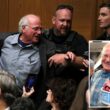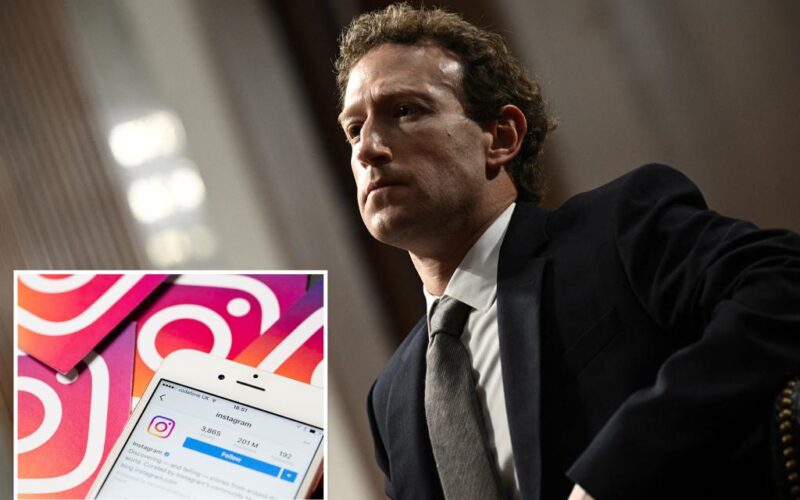A Meta executive once flagged concerns that as much as 40% of all activity on Instagram was “fake,” according to explosive documents that surfaced this week at the FTC’s landmark trial to break up the social media giant.
The embarrassing revelation surfaced in an October 2018 email exchange between Instagram’s current boss Adam Mosseri and an executive who raised alarms that the social-media app had “mis-prioritized and under-funded our integrity efforts” as it relentlessly pursued growth.
“By some estimates fake engagement could be in range of 40%,” the executive wrote in a memo he attached to an email to Mosseri.
The executive, whose name is redacted from the court papers, pushed Mosseri to commit more resources for Meta’s “well-being” team, warning that a “loss of public trust is the greatest threat we have” and that “left unchecked it will be crushing for the company.”
The executive called on Meta to take several “immediate steps” to improve Instagram’s integrity, including introducing “reCAPTCHA” tools to block bots, require phone number verification for accounts and forcing users to update to the latest version of the app.
Mosseri, who had taken over as head of Instagram just weeks earlier, said he agreed that “fake accounts and fake engagement are important problems,” but seemed hesitant to commit resources on Meta’s well-being team on the level the executive had proposed.
“I think what you’re saying at the end of the day is you think we should grow [well-being] more than we plan to, which I think is a reasonable position,” Mosseri wrote. “Honestly I think there are a handful of teams that are woefully understaffed, and WB is one of them.”
When reached for comment, a Meta spokesperson said the 2018 email exchange lacked proper context and asserted that the 40% figure cited by its executive at the time was likely much higher than actual levels of fake engagement.
“Out-of-context and years-old documents about acquisitions that were reviewed by the FTC more than a decade ago will not obscure the realities of the competition we face or overcome the FTC’s weak case,” the Meta spokesperson said in a statement.
The email exchange is part of a trove of internal Meta documents that have surfaced during the FTC trial. The feds have accused Meta of using a “buy or bury” strategy by acquiring upstarts like Instagram and WhatsApp before they could threaten its alleged social media monopoly.
The FTC has asked US District Judge James Boasberg to force Meta to sell off Instagram and WhatsApp to restore competition to the market. Any forced selloff of Instagram, has emerged as a key revenue driver, would be devastating to the company’s bottom line.
Earlier in the trial, Instagram co-founder Kevin Systrom said he felt that Zuckerberg treated the app’s success as a “threat” to Facebook after he bought it for $1 billion in 2012.
Systrom, who resigned in 2018, testified that important resources were withheld from Instagram despite his insistence – including one case where the app did not receive any new headcount to improve its data privacy practices following the Cambridge Analytica scandal.
The feds cited one email exchange in which Systrom had grumbled to Facebook’s ex-chief technology officer that Instagram was “starving for investment.”
“I was working very hard for the company to make this a success and not getting resources back,” Systrom said on the stand. “It was in stark contrast to the effort I was putting in.”
Mosseri, who took the stand last week, said he understood why Instagram brass was frustrated with some of Zuckerberg’s decisions, but argued both companies “benefited greatly” from the acquisition.
“I disagreed with some of the changes personally, but I also thought they were being made more of than they needed to be,” Mosseri said.
The outcome of the case is expected to hinge on whether Boasberg sides with the FTC’s argument that Meta has an illegal monopoly over a narrow market for “friends-and-family”-based social apps, with Snapchat as its only real competitor.
Meta has argued that definition is incorrect and that it faces tough competition from platforms like TikTok and YouTube.
FTC attorneys have relied heavily on internal emails and documents exchanged between Zuckerberg and others to build their case.
Meta has pushed back, arguing that the FTC has relied on old evidence to build a case that “ignores reality.”
Earlier this week, The Post exclusively reported that Meta “nudged” a top conservative critic of Big Tech for help swaying Republicans to its side on the eve of the FTC trial.








